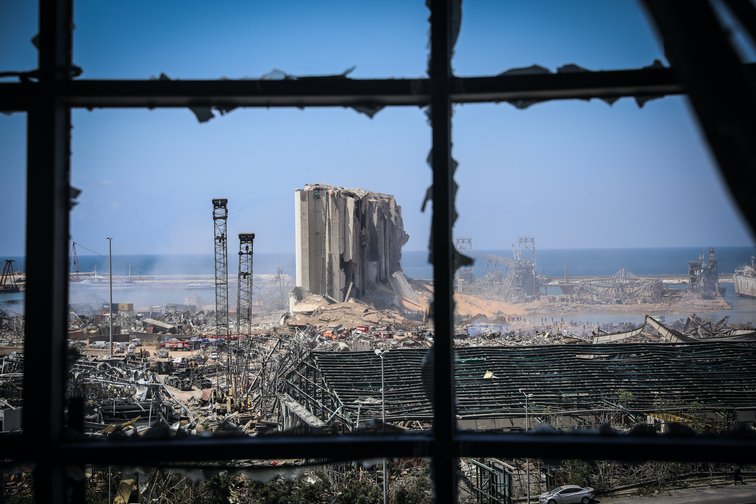Walid el Houri - Lebanon’s deadly blast: when corruption turned into carnage
On 4 August 2020, at
6pm the explosion at the Beirut port sent a destructive shockwave across a
radius of more than 7 kilometres. The explosion was heard as far away as
Cyprus, but it was felt across the whole world. It is hard to measure
the size of the human loss at this point. Official numbers put the number of
dead at over 157 with over 5000 wounded at the time of writing. But many more
are missing, and while people are still looking for their loved ones, burying
the dead, caring for the wounded and making sense of the immeasurable trauma,
the state in all its forms is absent, albeit begging for money and donations
from the international community. That money will most probably not reach the
afflicted but end up in the abyss of Lebanon’s corruption networks.

Beirut port on 5 August 2020, the day after the massive explosion
Picture by Houssam Hariri/NurPhoto/PA Images
As of yet, we do not
know exactly what happened. Many narratives are circulating and there is very
little trust in any official statement. But even the official story is one of
neglect of a criminal kind. The story goes back to
2013, when the MV Rhosus sailed
from Batumi, Georgia, heading to Biera in Mozambique carrying 2,750 tons of
ammonium nitrate. The ship was owned
and operated by Igor Grechushkin, a Russian citizen who is now resident of
Cyprus, where he was last recorded as the manager of Teto Shipping. It
was flying the Moldovian flag...
https://www.opendemocracy.net/en/north-africa-west-asia/lebanons-deadly-blast-when-corruption-turned-into-carnage/